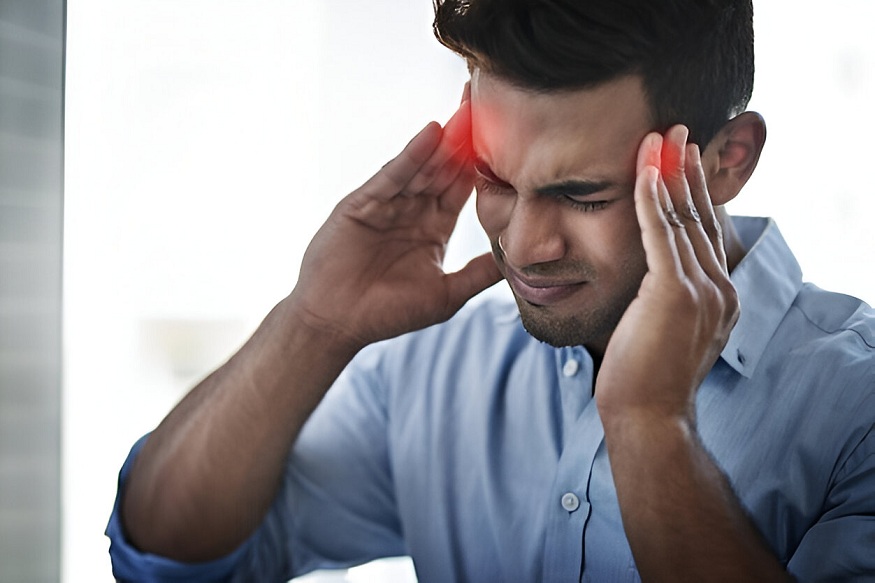This is a common complaint that arises from everyone. When headaches and dizziness occur frequently, they affect daily life activities. If individuals face a dull ache, a spinning sensation, or feeling off balance, understanding the causes is important for treatment and a good recovery process. Let’s explore more about frequent headaches and dizziness.
What are headaches and dizziness?
These are two common health problems that will be experienced by everyone at some point. These two conditions can happen separately, but sometimes they occur together. Frequent headaches and dizziness make you feel uncomfortable and confused about your body condition.
Headaches
A headache is a pain or discomfort felt in the head, scalp, or neck. The pain of the headache may range from mild to severe. It makes us feel like pressure, throbbing, or a dull ache. Some headaches last for a few minutes, while others can go on for hours, and some can last for days. Some of the types of headaches are:
- Tension Headaches
- Migraine
- Cluster Headaches
Dizziness
Dizziness is the feeling that you feel off-balance, lightheaded, or spinning. There are different types of dizziness.
- Lightheadedness
- Vertigo
- Unsteadiness
If you suffer from these frequent headaches and dizziness, visit a headache specialist in Coimbatore for advanced treatment.
What are the causes of headaches and dizziness?
There are different causes for headaches and dizziness. One of the common causes is stress. When you are worried or tired, the muscles in your head and neck will get tightened, leading to headaches. It also causes dizziness if you breathe very fast, and this condition is called hyperventilation.
- Lack of hydration is another cause of dizziness. When your body does not have enough water, the brain can shirk a little temporarily, which causes pain and dizziness.
- Improper sleep or lack of sleep is a common trigger. If there is a disturbance in sleep, your brain will be affected by insufficient sleep time, which can result in dizziness and headaches.
- Low blood sugar is another source of headaches and dizziness. This happens when you skip meals or do not eat enough healthy food.
- When you stare at the screen for a long period, it causes eye strain and headaches.
How are headaches and dizziness connected?
These are often connected because they can both be caused by similar problems in the body. The problem especially arises in the brain, nerves, and blood flow. Headaches can cause stress or irritation in the brain and surrounding blood vessels. This condition can affect your sense of balance, and you feel dizzy. The sensation of being unsteady, lightheaded or spinning is caused by dizziness. Headaches like migraines are known to cause dizziness. In migraine, changes in brain activity and blood flow can trigger pain and affect the ear parts, which control balance. This causes both headaches and dizziness.
Is it normal to feel dizzy after a headache?
Yes, it is common to feel dizzy after a headache, especially if the headache is intense and lasts for a long time. It may occur for several reasons, and understanding the factors causing headaches can help you manage your symptoms better. The common type of headache that is associated with dizziness is migraine. This type of headache with dizziness can cause discomfort.
Will our diet be responsible for headaches and dizziness?
Yes, diet plays a major role in causing headaches and dizziness. The food we eat and drink will directly affect our brain, blood flow, and energy levels. If our diet is unhealthy or unbalanced, it can trigger the symptoms. Dehydration and certain foods are common reasons for dizziness and headaches. Consuming more caffeine or alcohol can also cause dehydration. Skipping meals or not eating enough can also cause headaches and dizziness.
Certain foods can trigger headaches in some people. Foods like artificial additives, chocolate, cheese, and processed meats can trigger pain in the head because they release chemicals and make changes in blood flow. Lack of important nutrients like magnesium, iron, or vitamins can also cause headaches and dizziness. For example, iron deficiency can cause anaemia, where the blood cannot carry enough oxygen to the brain and causes dizziness and headaches.
What are the foods that can control dizziness and headaches?
The foods are rich in nutrients, which provide a high amount of needed nutrients relative to their calorie content. Natural whole foods that support hydration and help in the production of energy, maintaining brain function and the immune system. Foods that promote long-term health are advisable.
Water-rich foods
Cucumbers, watermelons, and oranges are foods that are rich in water content and are suggested to prevent dehydration. This food also maintains electrolyte balance.
Magnesium-rich foods
Magnesium-rich foods like spinach, almonds, avocados, and bananas will help relax blood vessels, support nerve function, and regulate blood pressure.
Iron-rich foods
Red meat and lentils support oxygen transport in the blood, which avoids reducing the iron level.
Foods rich in omega
Fatty fish, flaxseed, and walnuts are rich in omega-3s, which reduce inflammation and improve blood flow. By following these food habits, including medical help from the best neurology hospital in Coimbatore, you can get better treatment and complete recovery.
Conclusion
Dizziness and headaches can affect daily life, so treating them in advance can help in improving quality of life. Understanding their causes is important for the treatment process If you are facing symptoms like stress, dehydration, improper sleep, and a poor diet. Lifestyle changes like regular exercise, avoiding screen time, and skipping meals also contribute to controlling dizziness and headaches.

